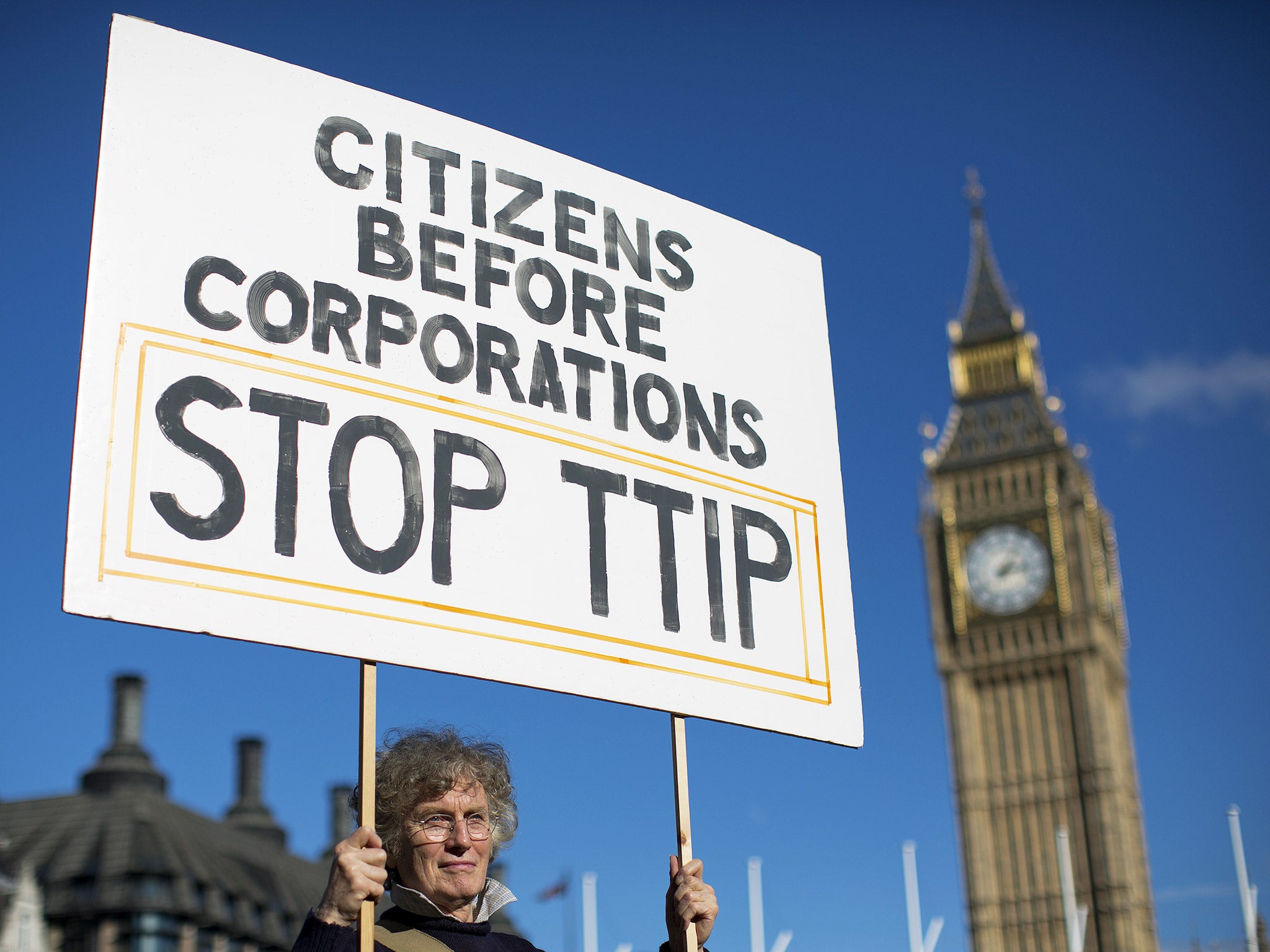If you're not already terrified about the potential human cost of TTIP, these examples will do it
In one of the most famous cases of TTIP-like nightmares, tobacco ‘giant’ Philip Morris sued Uruguay for its anti-smoking campaign

Your support helps us to tell the story
From reproductive rights to climate change to Big Tech, The Independent is on the ground when the story is developing. Whether it's investigating the financials of Elon Musk's pro-Trump PAC or producing our latest documentary, 'The A Word', which shines a light on the American women fighting for reproductive rights, we know how important it is to parse out the facts from the messaging.
At such a critical moment in US history, we need reporters on the ground. Your donation allows us to keep sending journalists to speak to both sides of the story.
The Independent is trusted by Americans across the entire political spectrum. And unlike many other quality news outlets, we choose not to lock Americans out of our reporting and analysis with paywalls. We believe quality journalism should be available to everyone, paid for by those who can afford it.
Your support makes all the difference.Unfortunately, the Transatlantic Trade and Investment Partnership (TTIP) is not very interesting. Part of the reason that the super secretive trade deal has been able to dodge scrutiny so nimbly is that the nuance of the legislation hardly makes for great headlines. Crucially, TTIP doesn’t have a face.
But it will do. If the deal goes through, there will be no shortage of human stories about the harm it has caused.
Take, for example, the farmers who will see their income fall by 0.5 per cent (the EU’s own estimate) if the partnership is implemented. TTIP’s deregulatory approach will lower EU food and environmental safety standards to bring them in line with those of the US. This will lead to an increase in factory farming that will harm both the environment and the livelihoods of farmers in the UK and across Europe.
And what about the animals themselves? The US has far fewer regulations on farm animal welfare than the EU does. It uses, for example, barren battery cages for hens, too small for a single animal to spread its wings in and yet employed to house three or four. You don’t have to be an animal lover to see that a deal which brings Europe down to this level is absolutely regressive.
For farmers, this is that ‘race to the bottom’ so beloved of the Conservatives – they’ll have to choose between lowering their standards of welfare, and trying to stay upright in a sea of aggressive corporate competition.
Then there’s the NHS. There is still a great deal of uncertainty around what TTIP will mean for the NHS, and the negotiators have a great aptitude for keeping the details murky.
The EU says that it will negotiate an exemption from the deal for publicly funded health services, and UK MEPs have scrambled to echo this. But what constitutes a ‘health’ service? What about those parts of the NHS that are not directly related to patient care like catering, IT or administrative services? Outsourcing these to private providers would still push up costs overall; perhaps more importantly, these privatised services would prioritise the rights of the corporations who own them over the patient in their care.
For a complete picture of the suffering this changed NHS would cause in the UK, consider alongside it the power TTIP would give corporations like tobacco companies to sue governments for health campaigns detrimental to their profits. In the most famous case, scary-sounding tobacco ‘giant’ Philip Morris sued Uruguay for its anti-smoking campaign. This is nothing short of a public health catastrophe.
And it’s not just Europe that will be affected by this deal. A lot depends on the wording of the final draft (currently due 2016) but in essence it would make it hard for non-TTIP countries to export processed goods. It could mean that a country like the Ivory Coast, which is the world’s largest cocoa producer, would only be able to export cocoa beans in their raw form. The country would begin to lose customers at the very moment international trade is helping to industrialise it.
This Saturday, thousands of campaigners will be taking part in a country-wide day of action, handing out leaflets and informing the public about this deal which will have such huge repercussions for this generation and the next. You can find out about what’s going on in your area here.
There’s no denying that TTIP is kind of boring, and the reading matter is dry as dust. But it’s important that we fight to know what’s happening as this deal murmurs on behind closed doors, because it is in the interests of some very powerful people to ensure that we do not.
Join our commenting forum
Join thought-provoking conversations, follow other Independent readers and see their replies
Comments